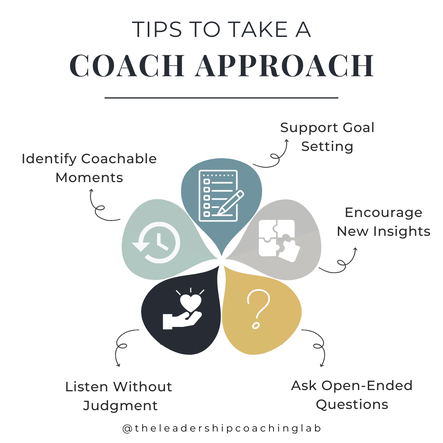 More and more Millennials are stepping into leadership and management positions. In many cases, they are overseeing various generations. Their teams can include Generation Z, now entering the workforce as college graduates, to Boomers, who are sometimes the age of their parents or even grandparents. This age diversity produces challenges for even experienced managers. For Millennial managers, often navigating their first supervisory role, it can produce stress and uncertainty. Here are a few reminders for Millennial managers as you learn and grow as a leader:
Healthy leadership requires incredible self-awareness, courage, and sacrifice. As a new manager or leader, you need support. Find a mentor or friend who can encourage you, help you process the situations you are navigating, and provide honest feedback. You’ve got this!
0 Comments
 Springtide Research Institute recently released their annual State of Religion and Young People report. The focus this year was on the mental health of young people ages 13 to 25. In this research study, 47% of young people say they are moderately or extremely depressed; 55% of young people say they are moderately or extremely anxious; and 57% of young people say they are moderately or extremely stressed. This study, like others, confirms that Gen Z is in the midst of a mental health crisis. So, what can we do to support them? In the report, Springtide identifies three important qualities to help support the mental health of young people in our organizations, churches, and teams: 1). Connection. Strong connections result in a sense of belonging, and belonging correlates with mental wellness. Belonging often occurs when young people understand that they are noticed, valued, and known by the people around them. When we create environments, activities, and interactions that help facilitate meaningful connections and relationships, we help support mental wellbeing for young people around us. 2). Expectations. Expectations are the standards that young people feel they need to meet or exceed in order to be accepted. If expectations feel unachievable, unclear, or unfair, young people can become discouraged, and their mental health can suffer. Providing tools, mentoring, and encouragement can help young people navigate expectations in ways that result in success and fulfillment. 3). Purpose. Feeling connected to something or someone greater than oneself can create a sense of purpose that supports mental wellbeing. Sometimes young people need mentoring or coaching to help them connect what they are doing or their plans for the future to a greater purpose. For more on how to support the mental health of Gen Zers in your life in 2023, check out this month's episode of The Leading Tomorrow Podcast, or get a copy of Springtide's most recent report.  I was recently presenting to a group of Gen Z college students. In discussing challenges and barriers they face, one of them commented, “the older generation frowns on us.” While I have heard similar comments in the past, there was a deep sadness that struck me in this statement. Generational misunderstandings are not new, but today young people desperately need hope and encouragement. They need trusted leaders and mentors to believe in them and tell them so. Dr. Tim Allchin wrote an article titled The Power of Encouragement. In it he discusses benefits of encouragement. He explains that encouraging words create results that are positive. In my presentations, I often get the question, “aren’t we just catering to young people’s sense of entitlement when we give them encouragement instead of correction?” Dr. Allchin indicates, “Some might wonder the danger of speaking too much encouragement when they feel like criticism might have been more warranted. However, we never lose when we give sincere encouragement, even though other types of conversations are needed as well in healthy relationships. If we aren’t in a pattern of regular and sincere encouragement, other types of hard conversations will have a lesser impact, because we do not have a consistent track record of being an encourager. Encouragement is a more powerful motivator than criticism every day of the week…if our words are going to be valuable to others, we need to learn to be a wise reprover, one that reflects a balance of grace and truth with a combination of hope and help.” Relationships with a lot of criticism and little encouragement usually fail to bring great value. Dr. Allchin explains, “If you want to help others grow, practice encouragement ten times as often as you bring a word of correction.” We don’t lose by encouraging others, even if they are not ready to hear correction yet. Young people learn to trust those who are sincere and speak the truth in love. It takes courage to change, and one of the greatest gifts we can give a young person is the confidence that they can really grow, change, and make a positive impact. It is interesting to consider how different our families, organizations, and society would be if we were committed to encourage more than we criticize. As we head into the holiday season, one of the greatest gifts we can give the young people in our lives is that of encouragement; for them to know that we “smile” rather than “frown” on them. For more on the best gifts we can give Gen Z and Gen Alpha, check out this month’s episode of The Leading Tomorrow Podcast.  In one of my favorite leadership books, Team of Teams, the author Stanley McChrystal explains, “The models of organizational success that dominated the twentieth century have their roots in the industrial revolution and, simply put, the world has changed…being effective in today’s world is less a question of optimizing for a known (and relatively stable) set of variables than responsiveness to a constantly shifting environment.” Young people today intuitively understand that the world is constantly changing, and adaptability is often more important than efficiency. They want to work with leaders, teams, and organizations that are willing to respond and adapt. This is one of the reasons that innovation is essential to engage the next generation effectively. This month, Dave Raley, founder of Imago Consulting joins me on the podcast to discuss how we need to rethink innovation. The first step is addressing myths about innovation. For example, one myth is that innovation is something you do after you have your act together, and everything is dialed in. The reality is that innovation is best applied when things aren’t going well. Crisis is often the opportunity that drives sticky innovation. Another myth is that innovation is all about the new, bright, shiny object. The truth is that innovation is a disciplined process. Young leaders bring unique perspectives to teams and organizations looking to become more innovative. They are more likely to question assumptions and to challenge current ways of doing things. They also are motivated to understand the “why” behind what we do, and the innovation process requires us to have those conversations. Philosopher Eric Hoffer once said, “In a world of change, the learners shall inherit the earth, while the learned shall find themselves perfectly suited for a world that no longer exists.” Innovation requires us to remain in a posture of learning. At times, this can result in fatigue, but the benefits are significant. Without learning, we are unlikely to thrive in a world that requires innovation. Futurist Alvin Toffler said, “The illiterate of the twenty-first century will not be those who cannot read and write, but those who cannot learn, unlearn, and relearn.” As you consider rethinking innovation, consider the following:
 Engaging multiple generations in any context can be challenging, but within established teams and organizations there can be unique barriers to effectively adapting to new expectations and needs. In these contexts, leaders need to be aware of their own mindsets toward younger employees, team members, and clients. It is also important to consider what assumptions we might be making that could result in confusion for those we are hoping to engage and equip. Steve Moore, President of Growing Leaders once said, “When institutional activities last more than one generation of leadership, the assumptions behind those activities become invisible to the current membership.” What is considered “self-evident” to most senior leaders may not be apparent to many new employees or participants. In this month's episode of The Leading Tomorrow Podcast, I talked with Doug Harrison, Director of Strategy and Innovation at Mission Aviation Fellowship. We identified several key mindsets and action steps critical for leaders and organizations in effectively engaging the next generation. These include the following:
 The following is a guest contribution written by leadership coach Dr. Bethany Peters: Recent research shows us that coaching in the workplace has significant benefits: employees who are coached can experience increased productivity, enhanced clarity, a boost in confidence, and improved communication skills, among other benefits. But what is coaching, exactly? Sir John Whitmore, a leading contributor to the coaching profession, defined it as a process of “unlocking people’s potential to maximize their own performance.” Coaching is distinctly different from other professions such as mentoring, consulting, and therapy. Although all of these are valuable sources of support, coaching employs a more facilitative approach to:
What value does a coach approach have for supporting the next generation? More than ever, an engaging relationship with a manager is vitally important to retaining young adults. When a manager takes an intentional, personalized approach to promote growth and development in the workplace, that style of leadership is much more likely to generate loyalty and commitment from members of Generation Y and Z. The coach approach appeals to young adults with its focus on:
A coach approach is grounded in trust-filled relationships and characterized by a commitment to:
If you are interested in leveling up your coaching skills, and learning how to take a coach approach in your specific setting, consider doing it with a group of other leaders and influencers… Six Weeks to a Coach Approach is an interactive, group coaching program launching this September, facilitated by leadership coach Dr. Bethany Peters. Social Media: https://www.instagram.com/theleadershipcoachinglab/ https://www.linkedin.com/in/bethany-d-peters/  This past month, we celebrated Father’s Day. Yet, we do not pause enough to discuss how critical the role of a healthy, emotionally engaged father, or father figure, is in the life of a young person. The reality is that the number of young people living without their fathers is on the rise. A Pew Research Center study of 130 countries and territories indicated that the U.S. has the world’s highest rate of children living in single-parent households. Almost a quarter of U.S. children under the age of 18 live with one parent and no other adults (23%), more than three times the share of children around the world who do so (7%). These statistics have significant implications for Generation Z (b. 1996-2010) and Generation Alpha (b. 2011-). In their book, The Importance of Fathers in Healthy Development of Children, authors Rosenberg and Wilcox explain that involved fatherhood is linked to better outcomes on nearly every measure of child wellbeing, from cognitive development and educational achievement to self-esteem and pro-social behavior. Children who grow up with involved fathers are: 39% more likely to earn mostly A's in school, 45% less likely to repeat a grade, 60% less likely to be suspended or expelled from school, twice as likely to go to college and find stable employment after high school, 75% less likely to have a teen birth, and 80% less likely to spend time in jail. Fathers matter. As we consider the challenges facing young people today, they desperately need fathers who are actively and emotionally engaged in their lives. We also need men who provide encouragement and mentoring to young people who do not have fathers in their lives. For those growing up without fathers, finding positive role models and mentors is important, as is pursuing a life of faith. In this month’s episode of The Leading Tomorrow podcast, I discuss this in more detail with my guest, Jesse Chukwemeka Umeh.  While technology provides wonderful benefits like connecting us to family who live far away, allowing for flexible work schedules, and providing access to valuable information, it can also disrupt our lives in many ways. Many of the apps we use daily are designed to be addictive, making it hard for us to disconnect or focus on the people right in front of us. Sometimes it is easier to just scroll through messages or news feeds than go for a walk, read a book, or actually call a friend or family member who is going through a difficult time. The constant access that technology provides can also make it difficult to carve out time for reflection, silence, and rest. The beginning of the summer is a good time to reevaluate our technology use and set some tech-smart goals for ourselves and our families. Here are a few to consider:
These are just a few ideas. For more tech-smart ideas, check out The Tech-Wise Family or My Tech-Wise Life by Andy and Amy Crouch or listen to the newest episode of The Leading Tomorrow Podcast.  Bradberry and Greaves, in their great little book, Emotional Intelligence 2.0 said the following: Of all the people we’ve studied at work, we have found that 90 percent of high performers are also high in EQ [emotional intelligence]. On the flip side, just 20 percent of low performers are high in EQ. People who develop their EQ tend to be successful on the job… [and] make more money-- an average of $29,000 more per year than people with low EQs. The link between EQ and earnings is so direct that every point increase in EQ adds $1,300 to an annual salary. While emotional intelligence--which includes skills like self-awareness, empathy, and relationship management--is emerging as critically important for leaders today, given the prevalence of technology, many young people are lacking in these skills. As we head into graduation season, many high school seniors and graduating college students are facing new challenges and opportunities which will require increased emotional intelligence. As leaders, teachers, parents, and mentors, we can encourage them to grow in these important skills that will benefit them for the rest of their lives. Here are a few ideas for helping the graduate in your life:
For more on students and emotional intelligence, check out this month’s episode of The Leading Tomorrow Podcast, where I chat with Gen Z high school graduate, Ariana Chaparro, about self-awareness and self-leadership.  As we seek to engage Gen Z, the most diverse and global generation in history, we must continue to grow as multicultural leaders and organizations. I recently read a research study by international church planter, Mark McKinstry, that provided some powerful encouragement on multicultural leadership from the Bible. The following is an excerpt from Mark’s Thesis on how the leaders and church at Antioch modeled multicultural leadership: Musvosvi (2010) wrote, “The church at Antioch was as close to being a model as one gets in its ability to understand and constructively deal with multi-ethnic situations” (p. 48). If this is the case, what did the leadership and membership look like? Some of our best clues are found in the words of the Bible. Luke, the author of Acts, describes the leadership team of the Church of Antioch, “Now in the church at Antioch there were prophets and teachers: Barnabas, Simeon called Niger, Lucius of Cyrene, Manaen (who had been brought up with Herod the tetrarch) and Saul” (Acts 13:1). Based on this, we know the Antioch Church leadership team was formed out of a multi-cultural, multi-lingual, multi-class group of people. Barclay (1957) explains the diverse team further, Barnabas was a Jew from Cyprus; Lucius from Cyrene in North Africa; Simeon was also a Jew but his other name Niger is given and, since this is a Roman name, it shows that he must have moved in Roman circles; Manaen was a man with aristocratic connections, and Paul himself a Jew from Tarsus of Cilicia and a trained rabbi. (p. 115) Regarding the leadership team, Steel (2018) commented, Paul and Barnabas were both Jewish but had been raised outside Palestine. Both were fluent in Jewish language and customs, but they also spoke Aramaic and Greek. Then there’s Manaen, a man who grew up with incredible opportunity and education within the household of Herod Antipas. Next there’s Lucius of Cyrene, from North Africa, who may have been one of the initial evangelists who arrived amid persecution and began \ reaching out to Greeks. And last but not least was Simon called Niger, who was most likely a black African. (para. 12) The unity of this diverse leadership team became a powerful symbol to the membership of the church and to the city where they lived (Steel, 2018). Additionally, the membership of the Church of Antioch was a reflection of the leadership team. The members were made up of multiple cultures, language groups, ethnicities, and social classes. When I interviewed Mark on my podcast, I asked him what lessons leaders today can take from the life of Barnabas, one of the key leaders on the multicultural team in Antioch. He encouraged:
Good questions for each of us to ask ourselves include, “How am I actively engaging those who are different than me or who disagree with me?” “How can I embrace the discomfort and learning that can come with diversity?” “How am I developing and encouraging a multicultural team around me?” Barclay, W. (1957). The letters to the Philippians, Colossians, and Thessalonians. Westminster John Knox Press. Musvosvi, J. (2010). Race, ethnicity, and tribal conflicts. Journal of Adventist Mission Studies,6(1), Article 5. Steel, D. (2018, July 25). What the diverse Church in Antioch can teach us today. Retrieved from https://www.thegospelcoalition.org/article/diverse-church-antioch-teach-today/ |
AuthorDr. Jolene Erlacher is a wife, mommy, author, speaker, college instructor and coffee drinker who is passionate about empowering the next generation of leaders for effective service! Archives
May 2024
Categories
All
|

 RSS Feed
RSS Feed